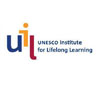
UNESCO GUIDELINES for the Recognition, Validation and Accreditation of the Outcomes of Non-formal and Informal Learning
Abstract
No abstract.
Introduction
Madhu Singh, Senior Programme Specialist, UNESCO Institute for Lifelong Learning, Hamburg, Germany
To follow up on the Belém Framework for Action,1 the resolution adopted at UNESCO’s Sixth International Conference on Adult Education (CONFINTEA VI) in 2009, the UNESCO Institute for Lifelong Learning (UIL) has developed the UNESCO Guidelines for the Recognition, Validation and Accreditation of the Outcomes of Non-formal and Informal Learning. The acronym RVA is roughly equivalent to PLA (prior learning assessment) in the USA. RVA is of great relevance as a response to the lack of lifelong learning opportunities and qualifications in many countries, and as a means of increasing social inclusion and participation in education. UNESCO’s broad agenda for RVA includes advocacy, capacity building, comparative research and promotion of dialogue at local, national, sector and institutional levels. Given the global context in which UNESCO operates, a common understanding and language are needed in order to promote the exchange of national experiences on RVA. Moreover, UNESCO believes that the following core values need to be addressed:
- Equity and inclusiveness in access to learning opportunities;
- Equal valuing of learning outcomes from formal, non-formal and informal learning;
- Quality assurance in the entire RVA process;
- Centrality of individuals; and
- Shared responsibility from design to implementation and evaluation.
The Six Areas of Action outlined in UNESCO’s RVA Guidelines provide a template to identify the critical factors in implementation, as well as obstacles and difficulties that need to be removed to ensure the smooth functioning of RVA. They need to be viewed from both perspectives of macro and micro levels of system change. The macro policy perspective focuses on legal frameworks, a national lifelong learning strategy and qualifications framework, as well as regulatory frameworks for quality, for disadvantaged groups, for the training of RVA practitioners, and for dealing with provincial/territorial issues and funding mechanisms.
Critical factors at the micro level include creating awareness and acceptance in formal education and training, informing individuals and learners about opportunities, the costs of processing RVA, the use of RVA to build bridges between the different education sectors, and increasing interaction between educational institutions, enterprises and the voluntary sector. By developing and implementing both macro and micro strategies, countries can contribute to implementing two important development goals: social equity and sustainable development.
UNESCO is aware of the many challenges involved in the implementation of RVA. However, it is well positioned to meet these challenges. It has committed itself to playing an active role in developing an RVA Observatory to collect and disseminate best practice, facilitate peer learning activities and comparative studies on different RVA systems, and to respond to the requests of member states to implement the RVA system. In all of these areas, UNESCO activities will reflect innovation and opportunity from both developed and developing countries.
Note
1 UNESCO holds a conference on adult learning, CONFINTEA (Conference Internationale d’Education des Adultes), every 12 years. The latest one took place in Belém in Brazil in 2009. The Belém Framework for Action called on UNESCO to develop guidelines for the recognition, validation and accreditation of non-formal and informal learning (See UNESCO. 2009. Belém Framework for Action. Hamburg, UIL).
